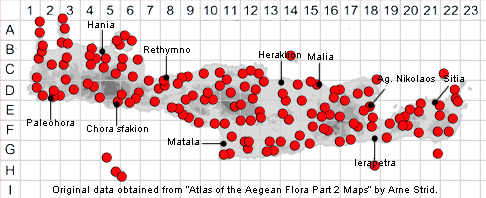
SPECIES DESCRIPTION
ASPARAGUS APHYLLUS
Family and Genus:- See- ASPARAGACEAE
Common Name:- Mediterranean Asparagus
Homotypic Synonyms:- None
Meaning:- Asparagus. The Greek name for plants sprouting edible shoots from the
rootstock.
Aphyllus (Gr) Without leaves, leafless.
General description:- Hairless rhizomatous perennials with tough stems, some
times becoming woody, often with a rather ferny appearance.
Stem:-
1) Up to 100 cm, branches smooth or papillose-scabrid, woody, green.
Leaves:-
1) True leaves reduced to small papery, bract-like structures.
2) Cladodes, borne usually in fascicles (5-)10-20(-30) mm. distinctly unequal,
3-7, spreading, strongly spiny.
3) Pedicels, 2·5-5 mm, surrounded by bracteoles at the base.
4) Nodes, with 3-6(-9) flowers mixed with the cladodes.
Flowers:-
1) Small, campanulate of 3-6, whitish or greenish.
2) Perianth-segments, (2·5-)3-4 mm.
Fruit:-
1) Berry, 7-8 mm, with 1-3 seeds, black when ripe.
Key features:-
1) Cladodes,distinctly unequal, usually more than 10 mm, in fascicles of 3-7
Habitat:- Dry places, hedges, rocky habitats and scrub.
Distribution:- S. Italy, S. Greece, Crete, N. Africa and E. Med. Widespread and
common on Crete.
.
Flowering time:- Apr-Oct.
Photo by:- Steve Lenton
